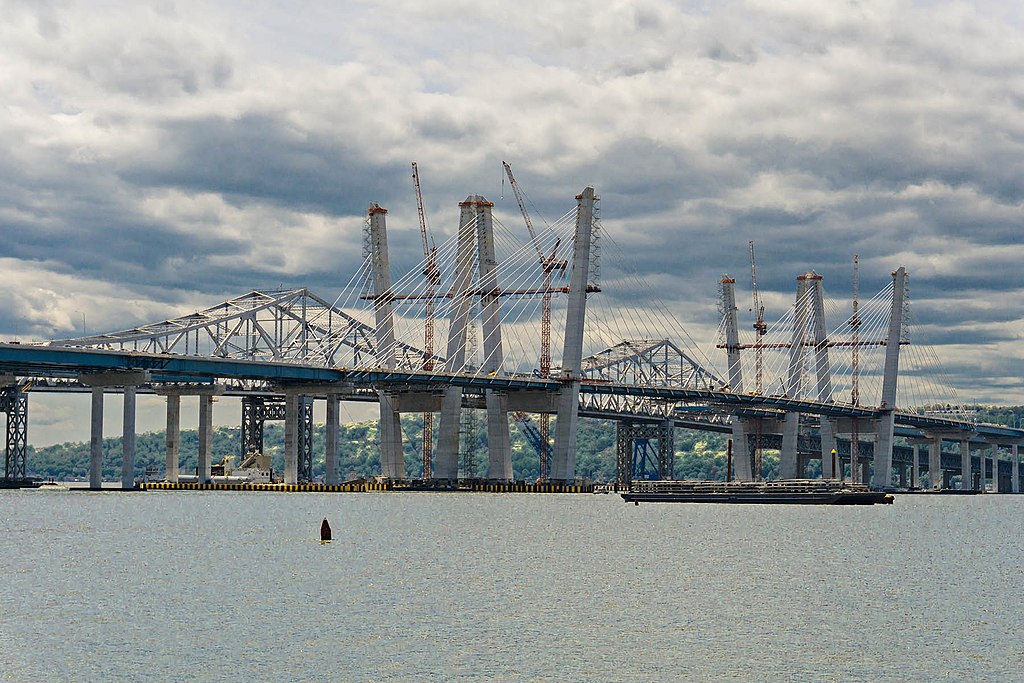New York agency’s delay in producing FOIL records entitles newspaper to attorneys’ fees

Update (March 19, 2020): In a March 12, 2020, memorandum and order, the New York Appellate Division, Third Department, affirmed the trial court’s decision to dismiss as moot the Article 78 petition of appellant Gannett (publisher of The Journal News), and also affirmed the trial court’s denial of attorneys’ fees for the appellant under New York’s Freedom of Information Law.
The Society of Professional Journalists, the Reporters Committee for Freedom of the Press, and a coalition of 21 media organizations are supporting a New York daily newspaper’s fight for attorneys’ fees after a state agency failed to promptly release documents related to the opening of the Mario M. Cuomo Bridge in response to a Freedom of Information Law request.
In a friend-of-the-court brief filed by attorneys for Baker Hostetler on Nov. 8, the media coalition argues that the New York State Thruway Authority’s nine-month delay in producing records to the Journal News was unreasonable and that the paper is entitled to attorneys’ fees and costs. The media coalition’s brief urges the New York Supreme Court, Appellate Division, Third Department, to reverse a trial court ruling, which concluded that the agency’s delay in releasing the records was not unreasonable and declined to award the newspaper attorneys’ fees.
The case between Gannett Satellite Information Network LLC and the Thruway Authority concerns a FOIL request seeking information related to the closing of the Tappan Zee Bridge and the opening of the Mario M. Cuomo Bridge. The $4 billion project connecting two counties across the lower Hudson River has been the subject of political scrutiny. Gov. Andrew Cuomo has celebrated the opening of the new bridge as one of his major accomplishments, while others have criticized the decision to name the bridge after Cuomo’s father.
The Journal News, a Gannett newspaper, specifically requested agency officials’ communications related to an August 2017 westbound traffic shift from the old bridge to the new bridge. Over the course of the next nine months, the Thruway Authority repeatedly extended its response date. It wasn’t until after the Journal News filed a lawsuit in June 2018 that the agency released roughly 1,100 pages of records, about two-thirds of which were already public.
“Even then,” the media coalition’s brief states, “the majority of the records the Authority released were nonresponsive, and additional records were withheld under claimed FOIL exemptions that the Authority refused to justify.” Roughly another 200 documents, many of which were also already public, were released after the Journal News administratively appealed the initial production.
Since its passage in 1977, amendments to New York’s FOIL have emphasized that records should be provided promptly to the public and that they should only be denied when they fall within one of the law’s exemptions. In this case, the media coalition argues, that didn’t happen.
“Affirming the Supreme Court’s holding that the Authority’s nine-month delay was ‘reasonable’ would, therefore, significantly impair FOIL’s effectiveness as a tool for public oversight of government activity,” the media coalition’s brief states.
Additionally, the coalition argues that New York’s public records law entitles the Journal News to attorneys’ fees. Thanks to a “fee-shifting” provision in the law designed to discourage unreasonable delays and denials, agencies that have no reasonable basis to deny the public access to records must pay the fees and costs related to the case.
Throughout the Journal News’ costly 18-month fight to obtain documents, the coalition argues that the Thruway Authority adopted a “sue us attitude” that is “inconsistent with FOIL’s purpose to promote openness and transparency in state and local government.”
Unreasonable FOIL delays and denials have become common in New York. According to a Watertown Daily Times editorial, the state “has an incredibly dysfunctional system” in enforcing the law and “virtually no enforcement mechanism against violators,” creating little incentive for government authorities to follow the law. The coalition’s brief cites a handful of cases in which the state unreasonably delayed or denied public records requests.
An extended delay is at the heart of a FOIL case the Reporters Committee got involved with last month concerning a news organization’s request for body camera video from the New York Police Department. In that case, the Reporters Committee argued in a friend-of-the-court brief that allowing a hearing to determine whether redacting body camera footage would be “unreasonably difficult” would unnecessarily delay the production of records.
Delays threaten the ability of the press to report on issues of importance in a timely manner. In the Journal News case, the newspaper still hasn’t gotten access to important documents more than two years after its initial public records request. As the media coalition argues, affirming that the delay is reasonable “ultimately results in a complete denial of prompt and meaningful public access to records.”
Read the media coalition’s full brief.
The Reporters Committee regularly files friend-of-the-court briefs and its attorneys represent journalists and news organizations pro bono in court cases that involve First Amendment freedoms, the newsgathering rights of journalists and access to public information. Stay up-to-date on our work by signing up for our monthly newsletter and following us on Twitter or Instagram.
Photo by Steve Strummer